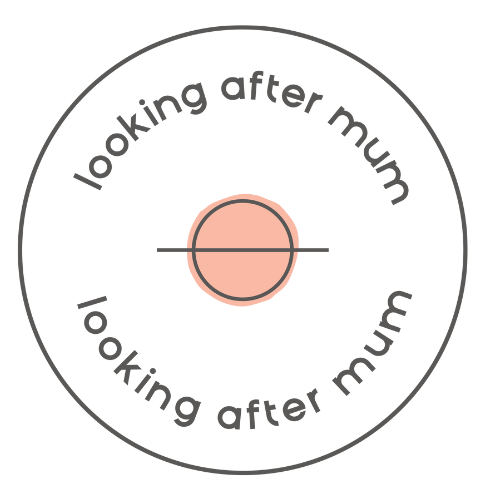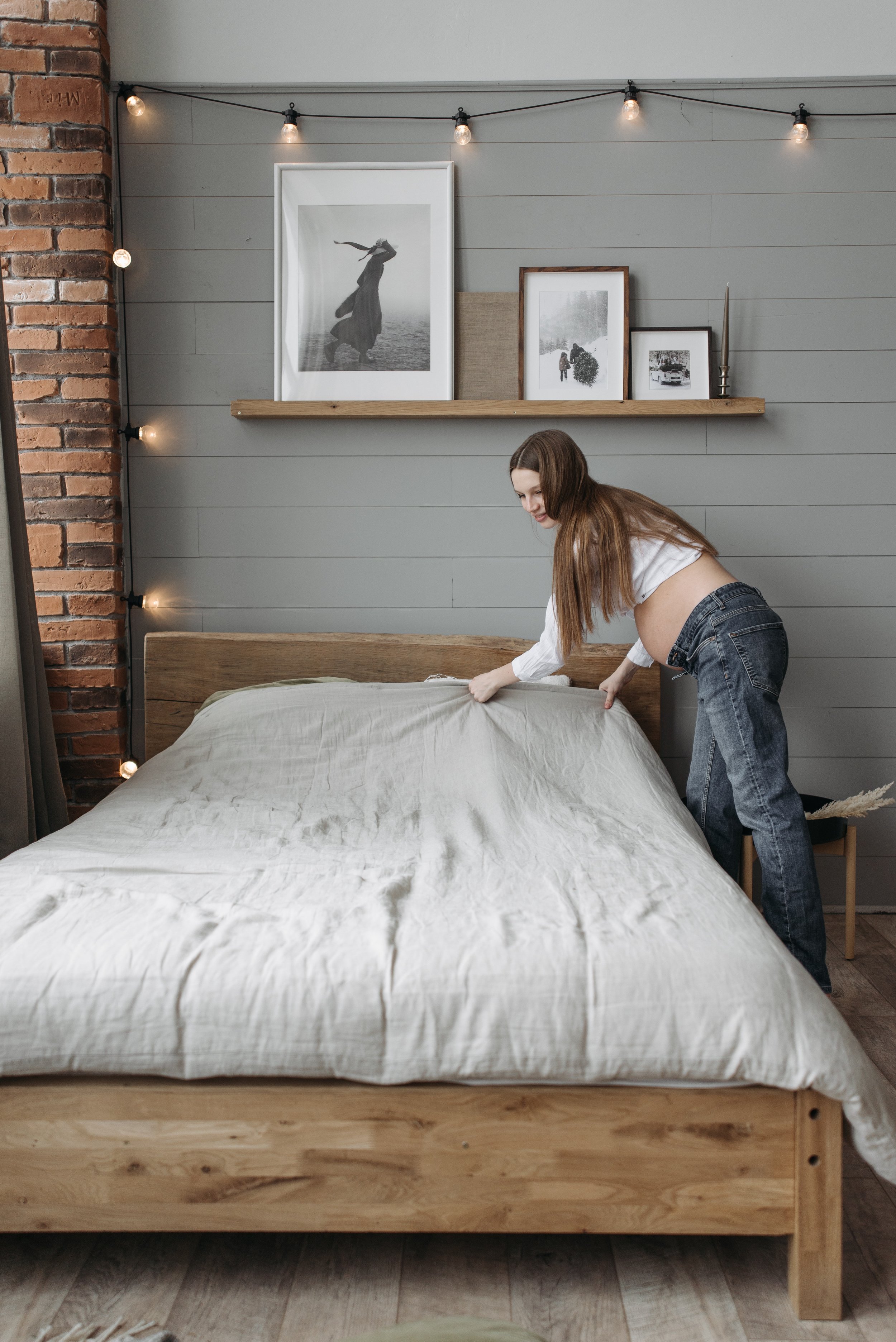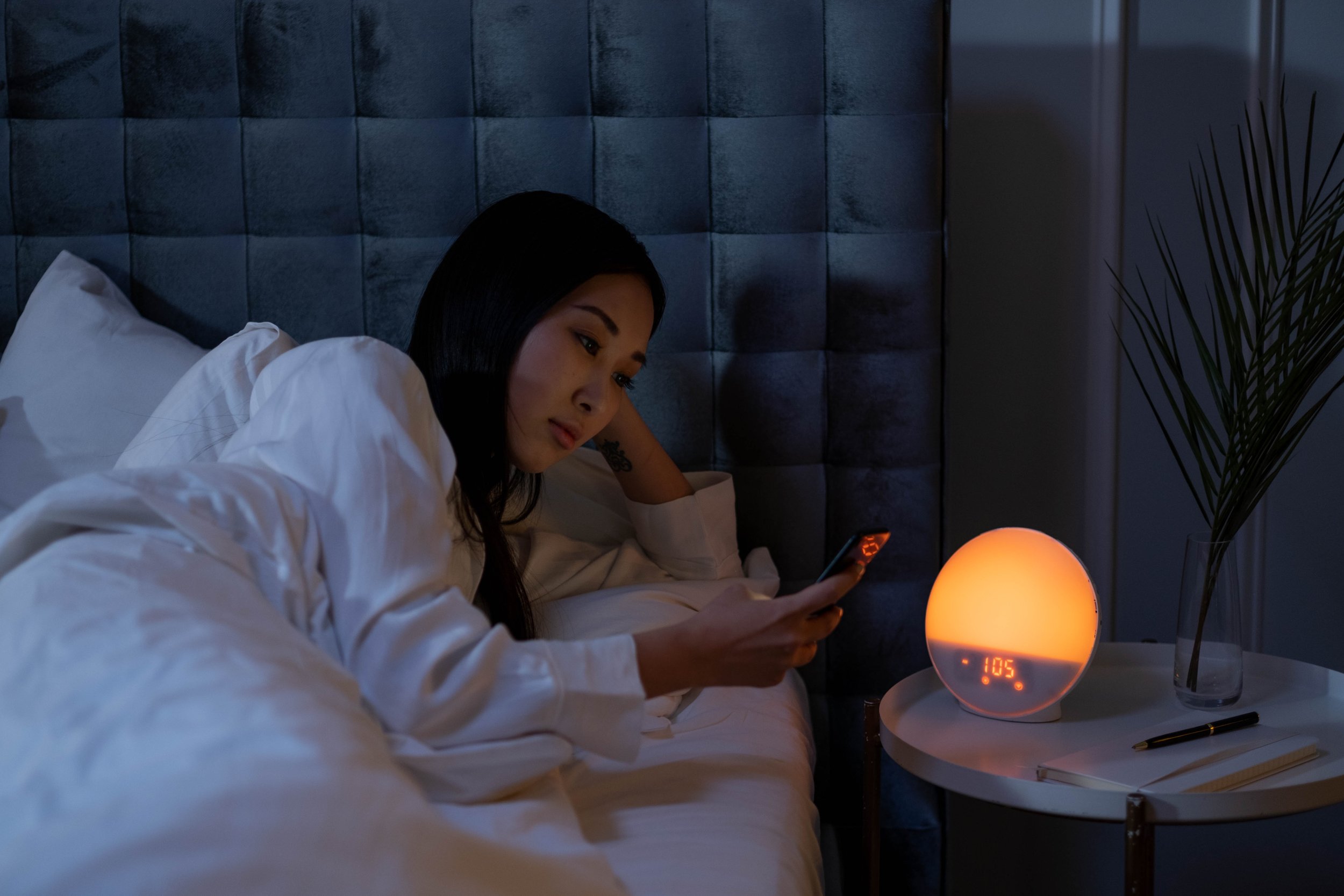How to Treat Insomnia in Third Trimester
By Sophie Harris - Pregnancy & Postpartum Psychotherapist
Sleep problems during pregnancy can feel incredibly difficult to deal with but are extremely common. This article will show you how to treat insomnia in the third trimester. As a Cognitive Behavioural Therapist, I’d love to share these tips to help you manage your sleep as well as you possibly can throughout your pregnancy -
Monitor Your Sleep
Monitoring your sleep is helpful to get a baseline understanding of how much sleep you are actually getting and the patterns that may be happening each night. Write down - either on a piece of paper, journal or in the notes on your phone - how much you are currently sleeping, what time you go to bed, when in the night and how often you wake up, and monitor how long it takes for you to fall asleep. This will help you with the following tips too.
Think about your daytime activities
Start thinking about what you're doing in the daytime that contributes to how you're sleeping at night. This involves ensuring that you're avoiding caffeine past lunchtime or the afternoon, that you're getting outside each day, and that you are exercising enough throughout the day.
If you are able to see the sun rise or set, it will help balance your circadian rhythm so that you're more ready for sleep during the nighttime.
Exercising
Obviously, during pregnancy, our exercise may be restricted but try finding a light movement that works for you - perhaps it's walking, yoga, swimming or doing some kind of low intensity indoor workout. Anything that helps get your body moving will be incredibly helpful to aid sleep.
Set your environment up for sleep
Everyone has got a different way of doing this and it’s about finding what works best for you, but it's definitely worth experimenting about how to make your environment as conducive to sleep as possible. This may include things like getting blackout blinds, even if you've never needed them before, ensuring that you've got a pregnancy pillow or a way to make yourself feel comfortable and avoiding blue lights from screens on our phones or laptops in our bedroom. All of these things help you create the right environment to get a good night's sleep.
Challenge your anxious thoughts
Often when we are experiencing sleep problems, we develop faulty or catastrophic thinking patterns about how bad it is to not sleep. We all know that the more that we worry about sleeping, the more likely it is that we are unable to sleep - it's a vicious circle.
Notice what thoughts you're currently having about sleep. For example, you may feel like it will be really awful if you don't sleep and start dreading the next day ahead and this tends to make your anxiety worse when you're trying to get to sleep. However, we need to try and shift this mindset and remember that it’s not a big deal if you don't get a good night's sleep.
Yes, it's uncomfortable and we would all prefer it if we did get enough sleep, but we can all function on limited sleep and it's not going to harm us. If we let go of some of this anxiety around feeling tired then we're much more likely to be able to get a good night's sleep in the first place.
Start writing your worries down
Writing down any worries or anxieties that you have, usually before bed can help get them out of your head and onto paper, which means that they're less likely to circulate when you’re trying to sleep. If you wake in the night with racing thoughts, you may also choose to write the thoughts down to get them out of your head. Try and experiment with what works for you.
Increase sleep association
Increase the sleep association between you and your bed - this means getting your body and mind used to your bed being a place where you sleep and nothing else. Try to put a ban on doing anything other than sleep or have sex in your bed. The purpose of doing this is for our body to get used to this being a place of sleep. When we watch TV, read or even chat with a partner, it makes it difficult to maintain that association.
If you are in bed and you’re not able to fall asleep after 15 minutes, it is recommended that you get up and go to sit in another room and do something which doesn't overstimulate you, such as reading, listening to an audiobook or something that will make you more tired, before you come back to bed. If you can't fall back to sleep, then get up again - it's likely that this will be hard at first and you may feel more tired initially as you adopt this strategy. However, it is proven that getting your body used to these cues makes it much easier to fall asleep.
Finally, how to treat insomnia in third trimester conclusion.
Remember that insomnia and sleep problems during pregnancy are extremely common, as uncomfortable as they may be. Try to remember that they will not last forever and by following these simple tips you are highly likely to be able to get a better night's sleep.
If you’d like to explore this further in CBT sessions with me, feel free to contact me to discuss this further.
Hi, i’m Sophie
I am a therapist and mother. I love helping new mums overcome anxiety and low mood to feel confident and content.
If you are looking for postpartum support for you or a loved one, then use the links below to find out more about the services that could help you.







